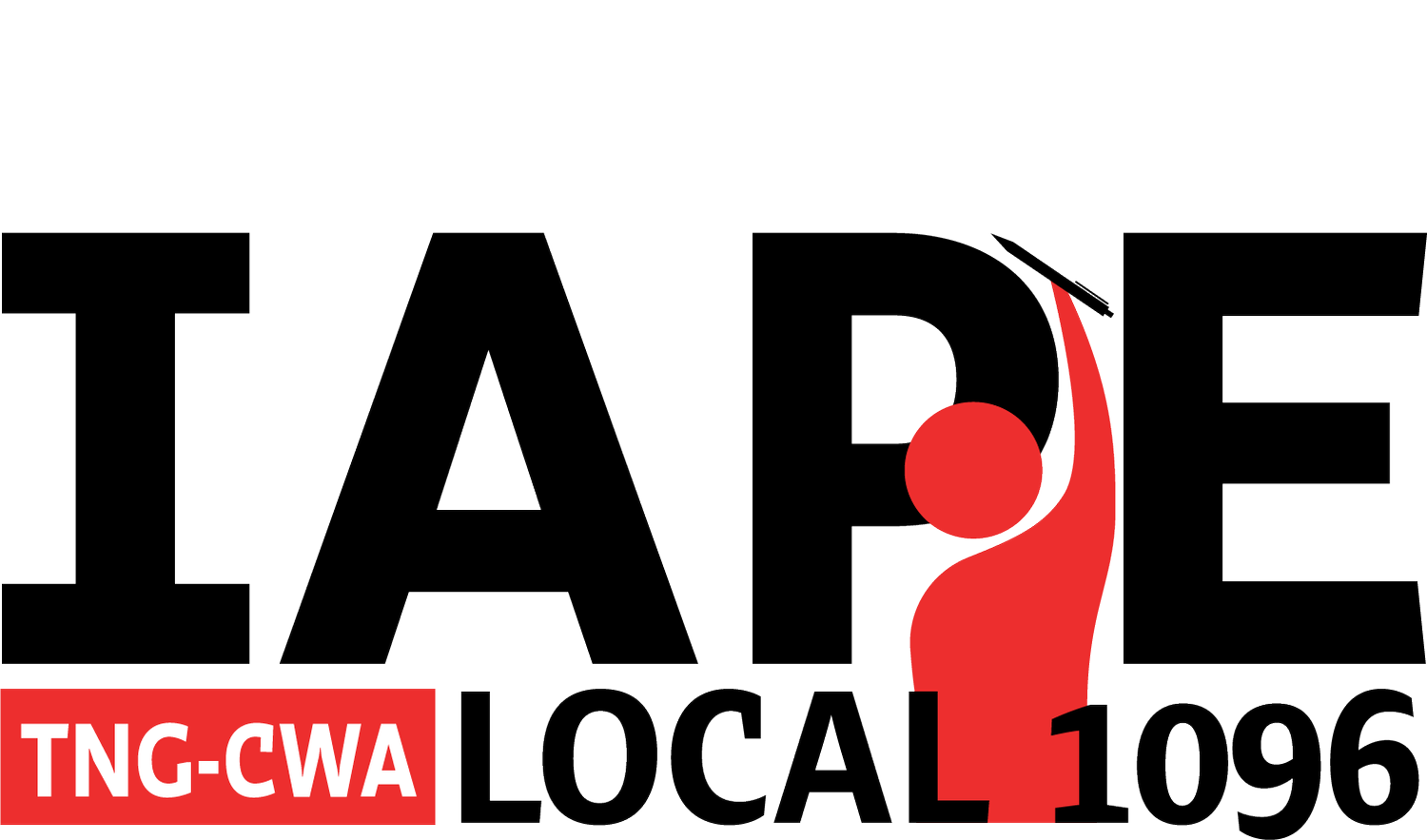Filing For Comp Time
/Last Thursday, Dow Jones emailed IAPE-represented employees to alert them of an update in how comp time entries are processed in Workday. Before last week, employees had to manually calculate their comp time before entering it in Workday. Now, they don't have to.
Today, we’ll explain why you received that message, what it means for those who file for comp time, and why this means nothing at all for overtime-eligible employees.
The Agreement
During 2019 contract negotiations, IAPE and Dow Jones reached agreement on a new process for filing for, and cashing out, comp time. The amended contract provision was intended to clarify when employees may receive comp time, simplify the filing process, and make requests to exchange comp time for cash automatic 30 days after comp time is earned, or sooner with the approval of a manager.
IAPE believed Dow Jones was slow to implement necessary changes to the time entry system and filed a grievance over the matter. Dow Jones claimed that delays had been caused by “technology department issues.” During an IAPE/DJ Grievance Committee meeting on Feb. 25, the company informed the union that the automatic calculation of comp time would be added to Workday.
What’s New
Prior to Apr. 16, when overtime-exempt employees earned comp time, they needed to multiply their hours worked by 1.5 in order to receive accurate compensation for work performed on scheduled days off (SDO). So, if a reporter’s SDO is Saturday and she was required to work seven hours on that day, she needed to enter 10.5 comp time hours (7 x 1.5 = 10.5) in Workday. Now, the system will automatically calculate time and record up to a maximum of 12 comp time hours for SDO work.
If you believe any of your 2020-21 comp time filings have not been recorded accurately, please contact IAPE.
Comp Time Cash-out: Still a Work in Progress
IAPE-represented employees have the right to cash out comp time, but it has been cumbersome to do so. Dow Jones, as part of the 2019 contractual agreement, should have automated this process in Workday, and has pledged to complete this task by October in conjunction with a migration of other New Corp properties to the Workday system. Once done, the grievance filed by the union will be resolved.
Why This Doesn’t Matter for Overtime Eligible Employees
Article II of the IAPE/DJ contract explains that overtime-exempt employees are entitled to comp time for SDO work. For those who are eligible for overtime, all work authorized or reasonably required and performed outside of regular working hours requires overtime pay. Comp time is only permitted for overtime-exempt employees.
Occasionally, an overtime-eligible IAPE member will ask a union rep whether a manager’s offer of a comp day in exchange for a weekend assignment is permissible. Our guidance is always the same: you’re entitled to overtime pay for that work, and the company agrees with the union on this point.
Sometimes, contract references to other forms of paid time off will be confused with comp time. For example, Article VIII of the IAPE/DJ agreement explains how employees are compensated for work performed on holidays: time-and-one-half for work performed during regular hours, double-time for extra hours, and a day in lieu of the holiday to be used at a later date (or an extra days pay, at a manager’s discretion for holidays from Jan. 1 through Jul. 3, and upon request from an employee for holidays after Jul. 3).
These days in lieu of holidays are not the same as the comp time described in Article II, and may be earned by all IAPE-represented employees, no matter your overtime eligibility status.
* * *
We hope this better explains last week’s comp time email from Dow Jones. If you ever have questions about this or any other contract provision, please contact IAPE: union@iape1096.org.

